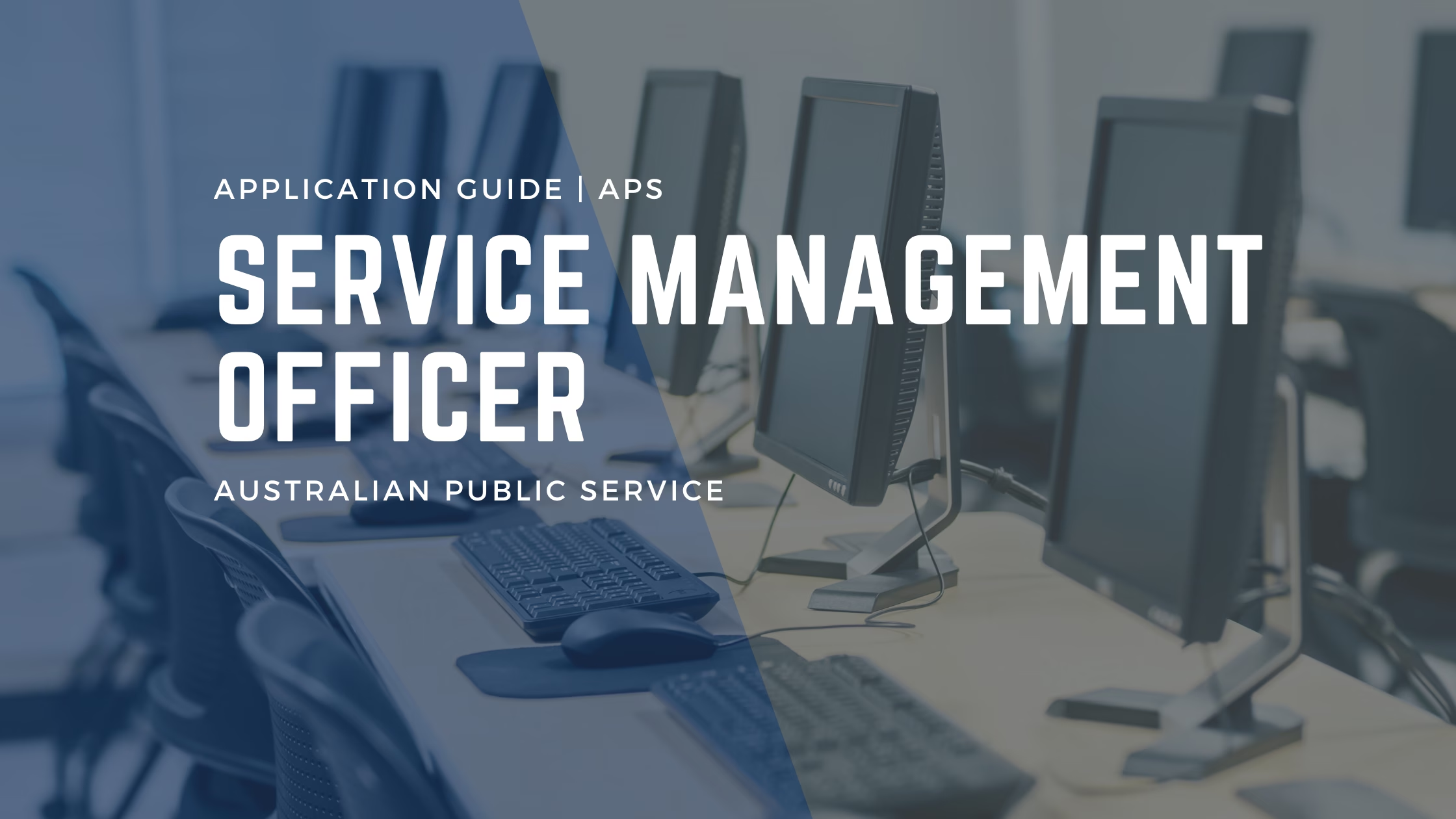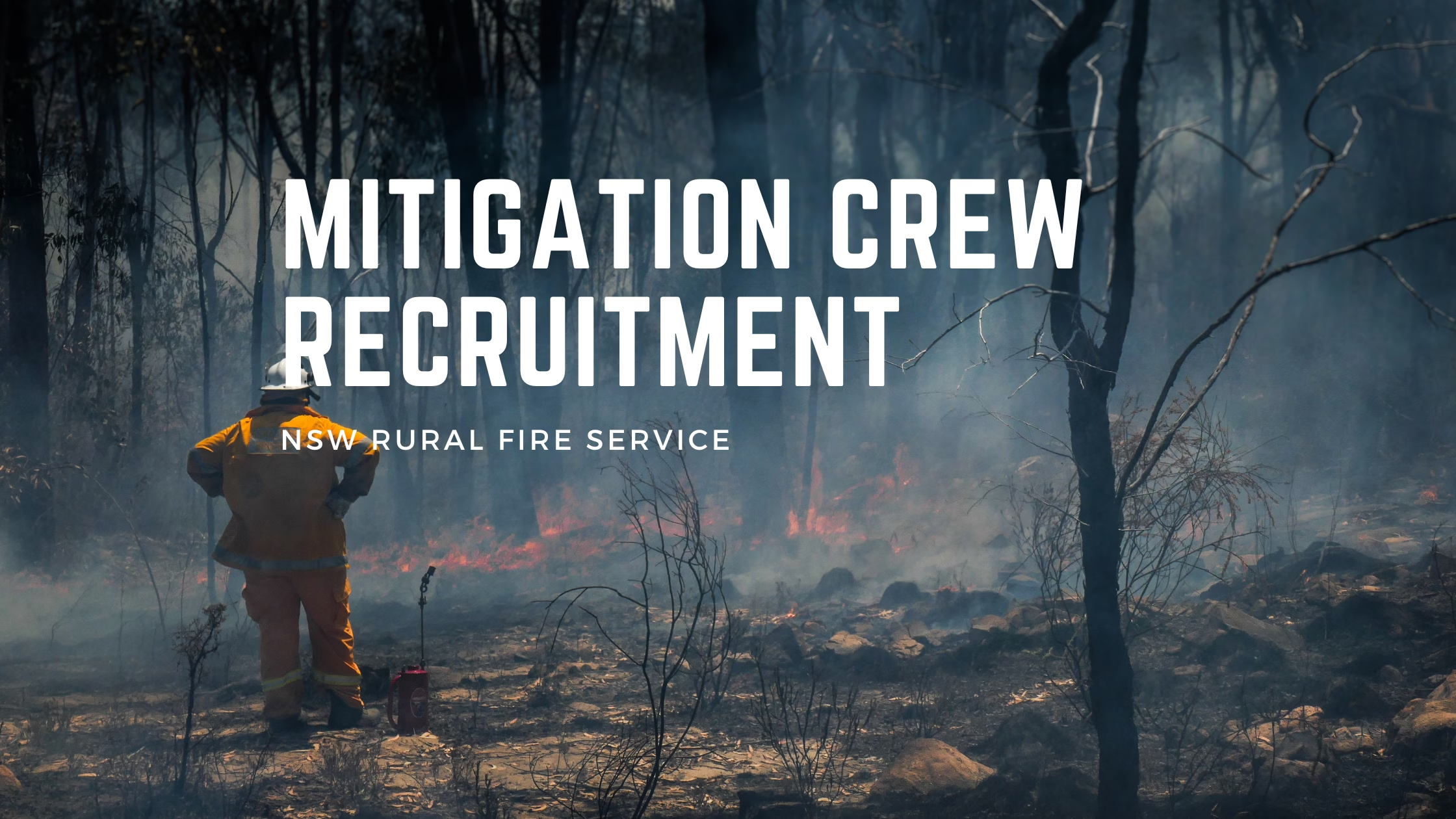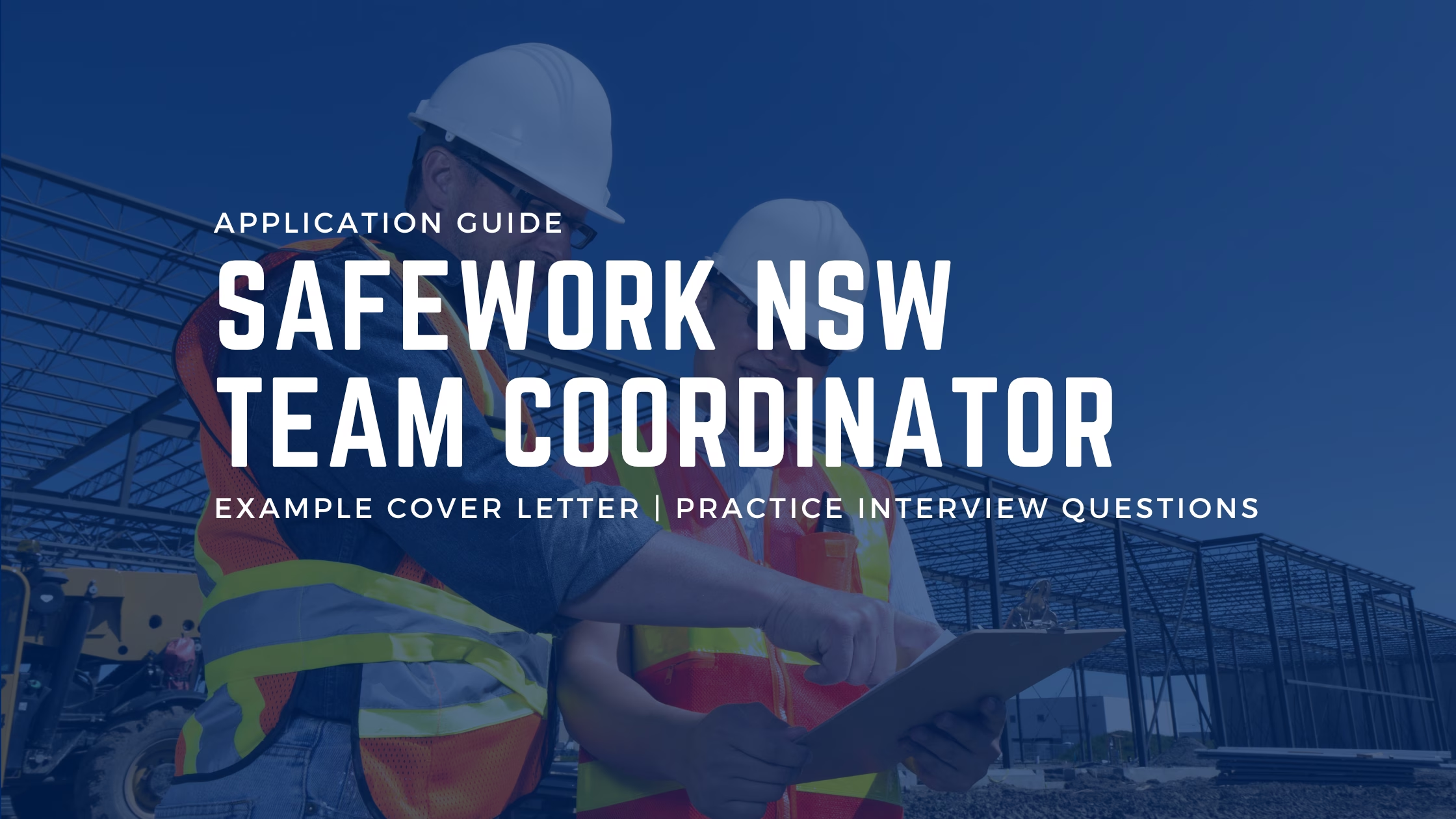Securing a role as a Complex Claims Specialist is an exciting opportunity to work in injury management, litigation, and compliance with one of Australia’s leading education providers, TAFE NSW.
This position focuses on workers compensation, case management expertise, and helping to maintain a safe workplace environment. Below is an overview of the position, as well as valuable information on how to craft a strong application tailored to the needs of the public sector.
Complex Claims Specialist Job Details
| Position Title | Complex Claims Specialist |
| Organisation/Entity | TAFE NSW |
| Job Location | Negotiable (Statewide campuses subject to availability) |
| Work Type | Temporary Full-Time until June 2025 |
| Base Pay | $119,757 – $132,188 p.a. plus super and leave loading |
| Closing Date | 20/01/2025 (11:55 PM) |
Free Team 3Thirty Digital Membership
Fast-track your path to an NSW Public Sector role with free resources.
✓ Free to JOin. Cancel anytime
✓ example cover letters
✓ Request a Custom Application Guide
Why This is a Great Opportunity
If you have experience in workers’ compensation or data analysis, this role could be your ideal next step. It offers a seamless transition, whether you’re moving from the private sector to the public sector or exploring a new career path within the NSW Public Service.
The benefits are outstanding: a six-figure salary and the flexibility of state-wide availability. With TAFE campuses across NSW, you can find a location that fits your lifestyle and make it your base.
Additionally, this is a temporary position. While some might see that as a drawback, it actually reduces competition, increasing your chances of securing the role. For ambitious candidates, this is an excellent way to gain valuable public sector experience and build connections for future opportunities.
About the Complex Claims Specialist at TAFE NSW.
TAFE NSW is renowned for delivering high-quality vocational education and training to a wide range of learners across New South Wales.
As a Complex Claims Specialist, you will join a dedicated Safety and Wellbeing team focused on injury management and workplace safety. This role requires expertise in managing workers compensation claims under the Workers Compensation Act 1987 and the Workplace Injury Management and Compensation Act 1998, along with familiarity in meeting insurance compliance standards from Insurance and Care NSW (iCare), State Insurance Regulatory Authority (SIRA), and SafeWork.
The core responsibilities of a Complex Claims Specialist involve the development and implementation of early intervention strategies to support injured employees and provide efficient rehabilitation plans that align with best practices. Working closely with internal and external stakeholders, you will guide complex injury claims—whether they involve litigation, prolonged recovery, or higher medical risk—and ensure ethical and compassionate case management. Beyond casework, you will collaborate with the broader organisation to foster a positive culture of safety and compliance, sharing insights that help prevent future incidents.
Challenges for Workers Compensation Complex Claims Specialist
This position involves navigating a diverse array of challenges. Handling complex injury management cases requires an in-depth understanding of legal frameworks, insurance regulations, and medical assessments. An effective Complex Claims Specialist balances the needs of employees, medical practitioners, and TAFE NSW policies. This often means working under time pressures to coordinate assessments, hospital visits, and rehabilitation providers, all while ensuring that empathy and professionalism remain at the forefront.
Another challenge is engaging stakeholders who may have varied objectives. Communication with injured staff, human resources, line managers, insurers, and regulatory bodies can be intricate. Attention to detail is crucial, as is maintaining a strategic approach to advocating for the injured worker’s best interests while also meeting organisational responsibilities. Your ability to think critically, analyse case files, and stay current with legal and regulatory changes will play a significant role in achieving successful outcomes.
Benefits of Workers Compensation Role
Taking on the Complex Claims Specialist role at TAFE NSW provides an opportunity to further develop your case management expertise in a supportive and well-structured public sector environment. Below are a few compelling reasons to consider:
Significant Impact: Work closely with diverse teams and specialist providers to ensure injured employees receive the support they need to recover and thrive in the workplace.
Multiple Locations: TAFE NSW offers numerous campus locations across the state. This wide geographic presence means you can potentially negotiate a location that suits your lifestyle, creating a more balanced work-life arrangement.
Collaborative Environment: Become part of a culture that values integrity, collaboration, and excellence. Contribute to a forward-thinking team that shares knowledge and invests in professional growth.
Career Growth: This role equips you with highly transferable skills that are in demand across the entire public sector. It’s a stepping stone to more senior positions in safety and wellbeing, opening doors to advanced opportunities within government.
Professional Development: TAFE NSW provides ongoing training, professional development resources, and a range of flexible working options. Engaging in these professional pathways can set you up for future roles within the public sector.
Application Requirements for Workers Compensation Complex Claims Specialist
Prospective candidates for the Complex Claims Specialist role should carefully follow TAFE NSW’s application instructions. Required documents for your application include:
Cover Letter: Submit a one-page cover letter showcasing how your capabilities and experience align with the demands of the position.
Current Resume: Clearly outline your relevant expertise in injury management and any other related fields.
Certified Qualifications: Provide certified copies of qualifications that demonstrate your suitability for this role, particularly in workplace safety or workers’ compensation.
There are no specific target questions listed in this job ad. However, it is a standard NSW Public Sector expectation to present your skills in a clear, structured manner (often reflecting the focus capabilities described in the role description). TAFE NSW’s recruitment process may also include interviews and reference checks.
If you are new to public sector applications, bear in mind that the structure is generally more formal than many private sector processes, focusing on how well you meet essential requirements and demonstrate relevant capabilities.
Essential Role Requirements for Workers Compensation Complex Claims Specialist
Applicants must demonstrate a solid understanding of the legislation governing workers’ compensation in NSW, including the Workers Compensation Act 1987 and the Workplace Injury Management and Compensation Act 1998. Equally critical are strong empathy and outstanding communication skills, as this role involves supporting individuals who may be dealing with life-changing injuries.
Essential Criteria:
Driver’s Licence: A current NSW driver’s licence with the capacity to travel for TAFE NSW business purposes.
Working with Children Check: A valid check is required prior to commencement.
Qualifications: A degree in a relevant discipline or equivalent skills, knowledge, and experience.
Injury Management Expertise: Proven ability to evaluate, advise, and manage complex injury management and workers’ compensation cases within the framework of Safe Work legislation.
You need to ensure that these essential requirements are included in your application and cover letter.
Desirable Experience
The ideal candidate would have experience handling medically complex or litigated claims. Skilled negotiation and problem-solving abilities help immensely in these high-stakes environments. Additionally, proven experience working within a structured organisation—especially in the public sector—can give you an advantage, demonstrating familiarity with policies, processes, and compliance frameworks.
Application Checklist for Workers Compensation Complex Claims Specialist
| Item | Description |
| Resume | Include details of case management experience, qualifications, and past roles. |
| Qualifications | Provide certified copies relevant to injury management or workplace safety. |
| Cover Letter | 1 page max, addressing how your knowledge and experience suit the Complex Claims Specialist role. |
| Application Submission | Use the TAFE NSW online portal (“Apply Now”). |
Candidate Profile for Workers Compensation Role in Public Sector
Hypothetically, lets draft an application for a mid-career injury management specialist named Morgan.
Morgan has worked in a private insurance company for several years, developing strong knowledge of complex injury claims and forging good relationships with legal firms and healthcare providers. Morgan is drawn to TAFE NSW’s educational context, recognising that a Complex Claims Specialist at this organisation can have a life-changing impact on staff, students, and entire communities.
Morgan has a proven track record in maintaining compliance within tight regulatory environments and managing challenging stakeholders with professionalism and empathy. Believing in TAFE NSW’s collaborative culture, Morgan wants to contribute to a robust safety framework and continue learning through professional development. This combination of core experience and enthusiasm for community service underpins why Morgan is applying for the role.
Example Cover Letter Workers Compensation Complex Claims Specialist
Dear Hiring Manager,
I am excited to apply for the Complex Claims Specialist role at TAFE NSW. With extensive experience in injury management, a deep understanding of regulatory compliance, and a passion for community impact, I am eager to bring my expertise to your organisation.
My career in the private insurance sector has honed my ability to manage complex injury claims, ensuring compliance with frameworks such as the Workers Compensation Act 1987 and the Workplace Injury Management and Compensation Act 1998. I have consistently demonstrated my ability to evaluate, advise on, and resolve intricate cases with professionalism and empathy. My experience collaborating with legal firms and healthcare providers has further refined my communication skills and ability to navigate challenging stakeholder relationships.
In addition to meeting the essential qualifications, including a degree in injury management and a valid Working with Children Check, I am adept at contributing to and enhancing safety frameworks. My proven ability to engage diverse stakeholders and foster a collaborative environment aligns closely with TAFE NSW’s mission of delivering educational excellence and community enrichment.
One example of my impact in injury management exemplifies my dedication and ability to deliver outcomes. While managing a complex claim at ABC Insurance, I was tasked with overseeing an injury case involving a worker who had sustained a life-altering spinal injury. The situation was further complicated by disputes between the employer and the injured party, creating a highly sensitive and emotionally charged environment.
My objective was to ensure a resolution that complied with legislative requirements while prioritising the worker’s recovery and maintaining a productive relationship with all stakeholders. I initiated regular, structured communication with the injured worker, employer, and legal representatives, setting clear expectations and ensuring transparency. I coordinated with healthcare providers to facilitate timely and appropriate treatment plans, while also advising the employer on their obligations under the Safe Work legislation. Leveraging my understanding of the claims process, I mediated disputes and kept the case progressing efficiently despite its complexity.
As a result, the claim was resolved in full compliance with regulatory requirements, and the injured worker received the support needed to transition to suitable employment. Both the worker and employer expressed satisfaction with the outcome, and my approach was commended for fostering empathy and professionalism in a difficult case.
TAFE NSW’s commitment to empowering individuals through education resonates deeply with me. I am eager to contribute to this vision by building on my injury management expertise to ensure the safety and wellbeing of staff and students. Thank you for considering my application. I look forward to the opportunity to discuss how my skills can make a meaningful impact at TAFE NSW.
Yours sincerely,
Morgan
Explain the STAR Technique
Public sector applications, including those at TAFE NSW, frequently rely on structured selection criteria and interview approaches. The STAR Technique—Situation, Task, Action, Result—is a proven method of demonstrating how past experiences prepare you for a specific role. By describing the Situation or context, clarifying the Task you were responsible for, detailing the Actions you took, and concluding with the Result, you provide clear evidence of your skill set in practice.
For instance, in the above cover letter, outlining a complex or litigated claim that you successfully resolved demonstrates not just theoretical knowledge but also your ability to achieve tangible outcomes. This clarity helps hiring managers confidently assess whether you can meet the demands of a Complex Claims Specialist in a large public institution.
Free Team 3Thirty Digital Membership
Fast-track your path to an NSW Public Sector role with free resources.
✓ Free to JOin. Cancel anytime
✓ example cover letters
✓ Request a Custom Application Guide
Interview Preparation and Conclusion
Preparing for the Interview
Job interviews for a role like Complex Claims Specialist often include scenario-based questions that delve into your understanding of complex cases and stakeholder management. For more targeted information, TAFE NSW recommends reviewing the Capability Application Tool. This resource provides guidelines on how to showcase your public sector capabilities effectively.
Below are some questions you might encounter during your interview:
Can you share an example of a time when you identified an ethical issue in your workplace? How did you address it, and what was the outcome?
Tell me about a time when you had to explain a complex or technical issue to a diverse audience. How did you ensure your message was understood by everyone?
How do you ensure that your team understands and adheres to relevant legislation and policy frameworks in their daily work?
Expect a structured conversation that explores your practical experiences, approach to conflict resolution, knowledge of legislation, and empathy in handling sensitive cases.
Good luck with your application!
Taking on a Complex Claims Specialist role with TAFE NSW is an opportunity to provide meaningful assistance to individuals recovering from workplace injuries, all within a supportive and values-driven environment. In many ways, TAFE NSW reflects the best aspects of public sector recruitment—transparent processes, strong collaboration, and an emphasis on community impact. If you have a background in workplace safety, knowledge of the Workers Compensation Act 1987, and a collaborative mindset, this role could be the perfect platform to expand your career while making a tangible difference.





